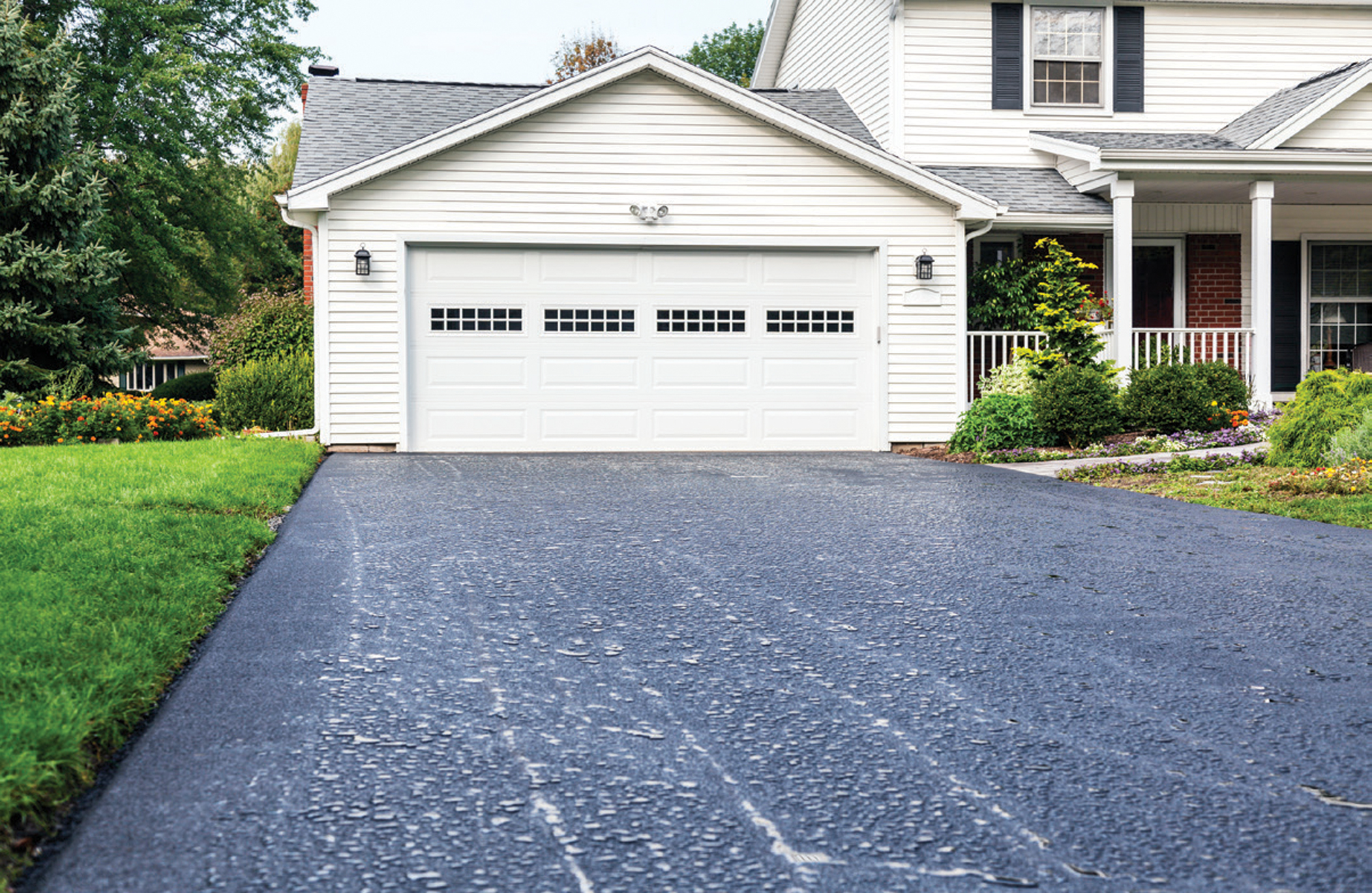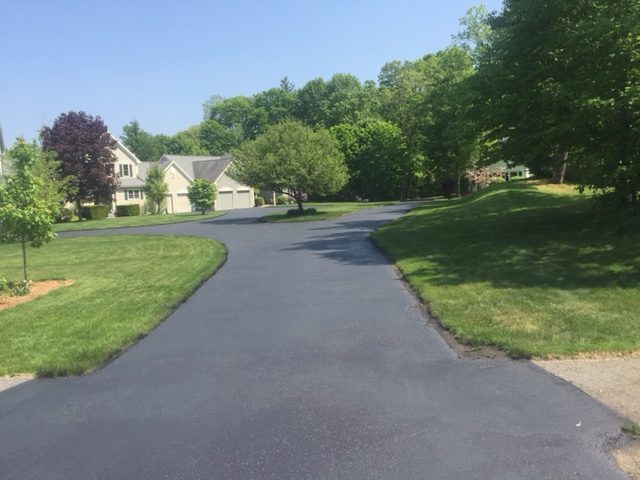Discover the Power of Commercial Parking Area Paving and Asphalt Sealing
Wiki Article
Warm Mix Asphalt: A Lasting Option for Pavement
Warm Mix Asphalt (HMA) has arised as a leading lasting selection for sidewalk options, using a myriad of ingenious innovations and environmental benefits. As the need for environmentally friendly building practices expands, discovering the nuances of HMA's sustainability can offer useful insights into the future of pavement remedies.Environmental Benefits of Warm Mix Asphalt

In Addition, Hot Mix Asphalt helps to reduce urban heat island effects. Its dark shade soaks up sunshine, lowering the amount of warmth reflected back right into the atmosphere compared to lighter-colored pavements. This can decrease ambient temperatures in urban locations, decreasing the need for a/c and ultimately decreasing power consumption.
In enhancement, Warm Mix Asphalt adds to improved stormwater monitoring. Its porous nature enables water to reenergize and penetrate the sidewalk groundwater products, reducing runoff and the risk of flooding. These environmental benefits make Warm Mix Asphalt a sustainable selection for leading freeways and roads.
Energy Effectiveness in HMA Production
Is energy effectiveness a vital consider the production of Hot Mix Asphalt (HMA)? Absolutely. Power plays a considerable function in the production of HMA, affecting both cost and environmental sustainability. One vital aspect of energy performance in HMA production is making use of cozy mix asphalt (WMA) innovations (hot mix asphalt). WMA permits the blending and positioning of asphalt at lower temperatures compared to standard hot mix asphalt, resulting in reduced power intake throughout manufacturing. This process not just lowers gas use yet also decreases greenhouse gas emissions, making it a more ecologically pleasant alternative.In addition, innovations in plant innovations have caused more energy-efficient HMA production procedures. Modern plants are developed with features like recycled asphalt sidewalk (RAP) processing capacities, reliable heater systems, and improved insulation, all contributing to power savings. By maximizing power use in HMA production, the industry can decrease its carbon impact while maintaining high-grade sidewalk materials. Power performance is, consequently, a vital consideration in making sure the sustainability of Warm Mix Asphalt production.
Recyclability of Warm Mix Asphalt
The recyclability of Warm Mix Asphalt (HMA) is a pivotal element of its sustainability and lasting environmental impact. HMA is among one of the most recycled products in the USA, with over 100 million lots of redeemed asphalt sidewalk (RAP) being recycled annually in new pavement building and construction. Recycling HMA provides a number of environmental benefits, such as minimizing the need for virgin materials, lowering energy consumption during manufacturing, and reducing the amount of waste sent out to land fills.The process of recycling HMA entails grating the existing pavement, crushing it right into smaller items, and blending it with brand-new aggregate and asphalt binder to produce a recycled original site mix. In general, the recyclability of HMA plays a considerable role in advertising sustainable practices within the sidewalk market.

Long-Term Performance of HMA
Asphalt sidewalks demonstrate sturdiness and strength over an extensive period, showing the long-term efficiency of Warm Mix Asphalt (HMA) In addition, innovations in HMA technology, such as the use of polymer-modified binders and cozy mix asphalt, have actually further boosted the longevity and long life of HMA pavements. By prioritizing top quality building and construction and upkeep practices, HMA proceeds to verify itself as a cost-efficient and lasting option for long-lasting sidewalk infrastructure.
HMA: Toughness and Sustainability
Demonstrating both resilience and sustainability, Warm Mix Asphalt (HMA) has actually ended up being a keystone in the construction of lasting pavement frameworks - commercial parking lot paving. HMA's longevity comes from its capability to here are the findings withstand hefty tons, harsh weather, and high web traffic quantities, making it a trustworthy choice for roadways, freeways, and airport terminal runways. The structure of HMA, which generally consists of accumulations, binder, and filler, plays an important role in improving its long life and resistance to tear and use
Additionally, HMA's sustainability depends on its recyclability and energy-efficient production process. The capability to recycle recovered asphalt sidewalk (RAP) in new HMA blends lowers the demand for virgin materials and lessens the ecological impact of pavement construction and maintenance. Furthermore, the energy effectiveness of generating HMA depends on its lower mixing temperatures compared to various other sidewalk products, bring about decreased power intake and greenhouse gas exhausts.
Conclusion
In conclusion, hot mix asphalt (HMA) supplies a lasting service for sidewalk with its ecologically friendly characteristics. HMA's recyclability, energy efficiency in manufacturing, and long-lasting toughness make it an environment-friendly option for roadway building.
HMA is one of the most recycled materials in the United States, with over 100 million loads of redeemed find out this here asphalt sidewalk (RAP) being reused each year in brand-new pavement building and construction.The process of reusing HMA includes milling the existing pavement, squashing it right into smaller items, and mixing it with brand-new aggregate and asphalt binder to produce a recycled mix.Asphalt sidewalks show longevity and strength over an extended duration, showing the long-term efficiency of Hot Mix Asphalt (HMA) Furthermore, developments in HMA modern technology, such as the use of polymer-modified binders and cozy mix asphalt, have actually even more improved the resilience and long life of HMA pavements. The capability to recycle redeemed asphalt sidewalk (RAP) in new HMA mixes decreases the need for virgin materials and reduces the ecological impact of sidewalk building and construction and maintenance.
Report this wiki page